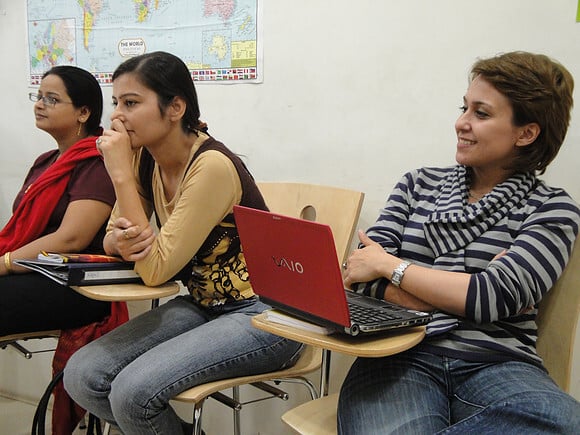If you’re thinking about studying English in Ireland, you might be wondering how the process differs for EU and Non-EU students. From fees and visas to benefits and classroom experiences, the details can vary depending on where you’re from. At ILSC Dublin, we welcome students from all over the world, so here’s a friendly breakdown to help you understand your options.
Do EU and Non-EU Students Need a Visa to Study English in Ireland?
EU Students
If you’re from an EU/EEA country or Switzerland, good news — you don’t need a visa to study in Ireland. You can travel, enrol, and start your classes without dealing with immigration paperwork.
Non-EU Students
If you’re from outside the EU, you’ll need to check the visa requirements before travelling. Most Non-EU students who want to study English for more than 90 days will apply for a Stamp 2 visa, which allows you to study full-time and work part-time during your stay. You’ll also need to enrol in a course that’s on the Interim List of Eligible Programs (ILEP) which includes many of ILSC Dublin’s programs.
How Do Fees Differ for EU and Non-EU Students?
EU Students
EU students often enjoy lower tuition rates, and there are no immigration-related fees. You can enrol in short or long-term courses without extra costs.
Non-EU Students
Fees for Non-EU students are typically higher because of visa-related requirements, such as proof of finances, medical insurance, and a minimum course length (usually 25 weeks for visa eligibility). At ILSC Dublin, we offer flexible payment options to help you manage your budget.
Tip: We’ve put together a full Budgeting Guide for Students in Dublin to help you plan your expenses, whether you’re from inside or outside the EU.
Can Both EU and Non-EU Students Work While Studying?
-
EU Students
Yes! You can work freely without restrictions during your studies.Non-EU Students
With a Stamp 2 visa, you can work up to 20 hours per week during the school term and up to 40 hours per week during official holiday periods (June–September and mid-December to mid-January). This is a great way to gain experience, meet locals, and earn extra money while studying English in Ireland.
-
Do the Classroom Experiences Differ?
No, whether you’re an EU or Non-EU student, your classes at ILSC Dublin are designed to be interactive, multicultural, and engaging. You’ll study alongside classmates from all over the world, participate in group activities, and enjoy our vibrant social program outside the classroom.
-
Why Choose ILSC Dublin?
- Wide range of English programs to match your goals
- Central Dublin location close to shops, cafes, and culture
- Experienced teachers who make learning fun and effective
- Global student community that feels like family
Whether you’re from Berlin, São Paulo, Nairobi, or Tokyo, we’ll guide you through the process so you can focus on improving your English and enjoying life in Ireland.
Studying English in Ireland is an exciting opportunity for both EU and Non-EU students. The key differences come down to visas, fees, and work rights, but no matter where you’re from, ILSC Dublin is here to make the journey smooth, supportive, and memorable.




